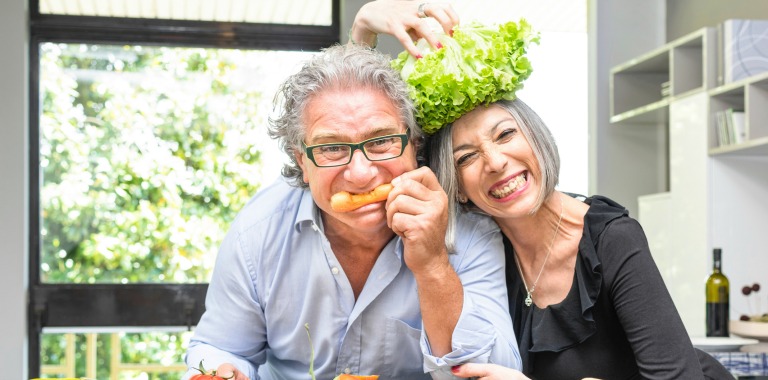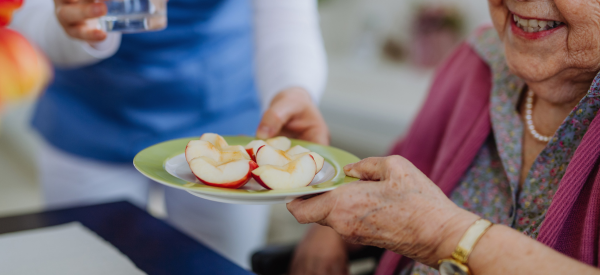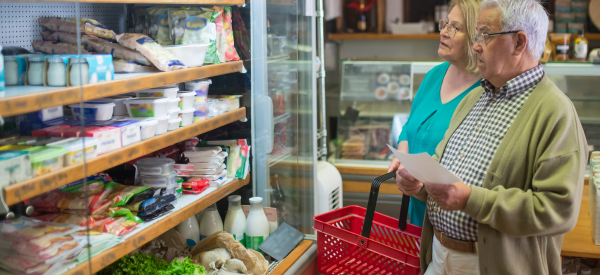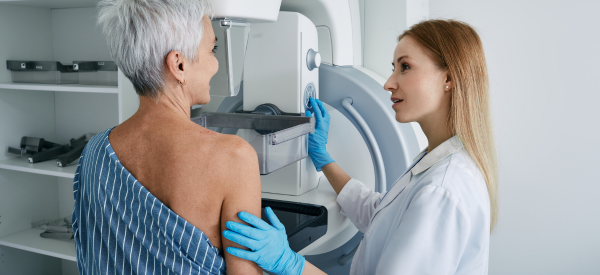There are changes that happen to our bodies as we age that make it almost impossible to maintain the same kind of eating habits that we took on in earlier years. Therefore senior nutrition is important.
Things like a slowing metabolism, loss of appetite and chronic health issues often trigger dietary changes.
These changes, in some way, are all related to each other.
Many seniors experience a loss in appetite as they get older, which translates into fewer calories being burned. Fewer calories are being burned because many older people are likely to be less active. They’re likely to be less active due to an increase is joint and muscle problems. And because the metabolism slows, a loss of muscle mass occurs.
It’s important to note that even though the body goes through this very normal process, it’s necessary to get the calories and nutrients you need to keep your bones, muscles and organs functioning properly.
Other changes that many seniors notice are a decreased sense of smell and taste – this could be due to a number of different reasons such as fewer taste buds, dental problems or the use of medication.
A balanced diet containing the proper vitamins and nutrients will not only keep you healthy and fit, it also contributes to a more active and independent lifestyle and less time spent at the doctor’s office.
A well-planned meal can also reduce the risk of stroke, type 2 diabetes, heart disease, bone loss, anemia and some types of cancer.
As you get older, your diet should include a mixture of lean protein, fruits and vegetables, whole grains and low-fat dairy products. Things like salt, sugar, and saturated fat should be avoided.
Freedom Home Care did a little digging and found out why clean eating makes such a difference in the lives of people over 65.
According to the National Council on Aging, a healthy plate of food looks a lot like a rainbow and includes many of the foods that are listed below.
Red fruits and vegetables contain lycopene can help lower the risk of heart disease, cancer, prostate problems, memory function, urinary tract issues and skin damage from the sun.
Orange foods like peaches, nectarines, and mangoes provide potassium and vitamin A – they help prevent cancer and heart disease, protect against infections and keep eyes and skin healthy.
Yellow fruits and vegetables are packed with antioxidants which help maintain healthy teeth and gums, heal cuts, absorb iron, prevent heart disease and inflammation, improves circulation and prevent
More cancer preventing fruits and vegetables include apples, grapes, pears, broccoli, green beans, and asparagus. They’re also essential for a good circulatory system, vision, and strong teeth and bones.
Whole grains, oats, fish and nuts are not only important for healthy digestive system, they also help decrease constipation and maintain proper cholesterol levels.
If you or your loved one is receiving either personalized elder care or in home care services, a trained professional who knows senior nutrition can help you create a well-balanced meal plan that meets your special dietary needs.
Senior Nutrition Tips




